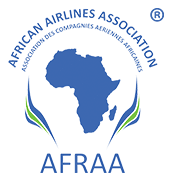The African aviation industry is grappling with a significant financial burden, primarily due to excessive taxes and charges imposed by governments across the continent. This financial strain is hindering the growth and connectivity of the sector, particularly for African airlines. Abderahmane Berthe, the Secretary-General of the African Airlines Association (AFRAA), has voiced his concerns and appealed to the Economic Community of West African States (ECOWAS) to address this issue by reducing the levies imposed on airlines operating within the region. He emphasized that these escalating costs are stifling the potential of the aviation industry and impeding its contribution to economic development. The heavy tax burden is particularly acute in countries like Nigeria, where operational costs for airlines are significantly higher than in many global hubs, contributing to inflated airfares and limiting accessibility for passengers.
Berthe’s call for action underscores the urgency of government intervention to create a more conducive environment for airlines to operate. He highlighted the need for a collaborative approach between governments, regulatory bodies, and industry stakeholders to develop policies that support sustainable growth and enhance connectivity within Africa. The Secretary-General also championed the collaborative efforts of five major African airlines – Ethiopian Airlines, South African Airways, EgyptAir, and Royal Air Maroc, among others – to pool resources and reduce maintenance, repair, and overhaul (MRO) costs, demonstrating a commitment to improving efficiency and cost-effectiveness within the industry. This collaborative initiative signifies a recognition of the need for strategic partnerships to address the financial challenges facing African carriers.
Furthermore, Berthe recognized the positive potential of the African Continental Free Trade Area (AfCFTA) to stimulate growth in the aviation sector, emphasizing the demographic advantage of Africa’s young population. However, he also cautioned against the persistent challenges posed by inadequate infrastructure and inefficient policies, which continue to impede the progress of the industry. These infrastructural deficiencies and policy bottlenecks create significant hurdles for airlines, hindering their ability to expand operations and capitalize on the opportunities presented by the burgeoning African market. Addressing these fundamental challenges is crucial for unlocking the full potential of the aviation sector and its contribution to economic integration across the continent.
The concerns raised by AFRAA are echoed by the International Air Transport Association (IATA), further emphasizing the severity of the financial pressures faced by airlines operating in Africa. Kamil Al-Awadhi, IATA’s Regional Vice President for Africa and the Middle East, condemned the exorbitant operating costs in Africa, citing Nigeria as a prime example where costs surpass even those of major international hubs like London Heathrow. He pointed out the disproportionately high insurance costs in Nigeria, which are eight times higher than their global counterparts, contributing significantly to the overall financial burden on airlines. This cost disparity underscores the need for regulatory reforms and policy adjustments to create a level playing field for African airlines.
Al-Awadhi criticized the disconnect between African governments and the aviation industry, accusing governments of viewing the sector primarily as a source of revenue rather than a strategic driver of economic growth. He lamented the excessive taxation of airlines, revealing that a significant portion of every ticket sold in Africa is allocated to taxes, charges, and levies. This heavy taxation burden places African airlines at a competitive disadvantage and limits their capacity to invest in expansion and improve services. Al-Awadhi’s call for governments to cease treating aviation as a “cash cow” emphasizes the need for a more collaborative and supportive approach to foster the growth and sustainability of the industry.
In summary, the African aviation industry is facing significant financial challenges due to excessive taxes, charges, and levies imposed by governments. The high cost of operations, particularly in countries like Nigeria, puts African airlines at a competitive disadvantage and hinders their growth. Industry leaders like Abderahmane Berthe of AFRAA and Kamil Al-Awadhi of IATA are urging governments to reconsider their approach to aviation and implement policies that support the industry’s development. They stress the importance of reducing taxes and charges, addressing infrastructural deficiencies, and fostering a more collaborative relationship between governments and the aviation sector. The future of African aviation hinges on the ability of stakeholders to address these challenges effectively and unlock the enormous potential of the industry to contribute to economic growth and connectivity across the continent.


